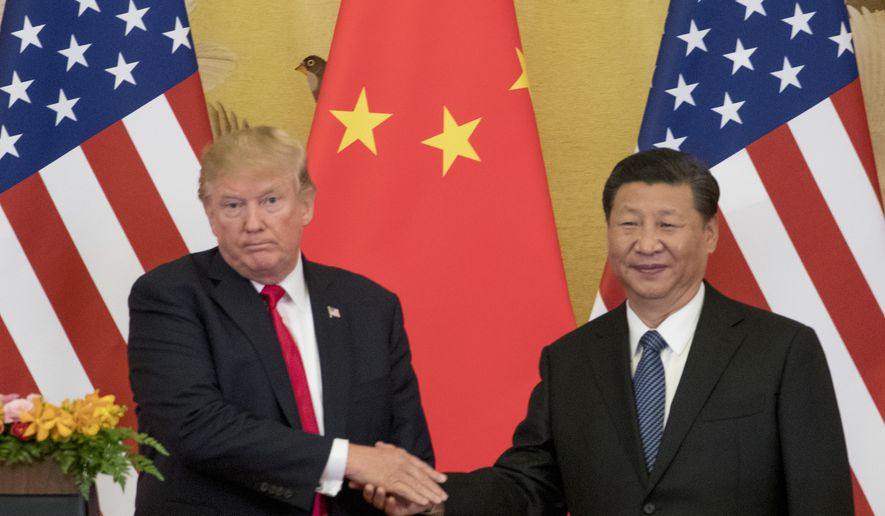
President Trump announced Saturday that he sent a delegation to China for a another round of trade talks.
The negotiations are taking place Saturday and Sunday in Beijing against a backdrop of trade war fears around the globe after the Trump administration[1] slapped tariffs on several trading partners, including China, the European Union, Canada[2] and Mexico[3].
“These meetings will take place from June 2 through June 3, and are a continuation of the talks held in Beijing one month ago and in Washington two weeks ago,” the White House said in a statement.
Commerce Secretary Wilbur Ross will lead the discussions, accompanied by U.S. Ambassador to China Terry Branstad, Under Secretary of Treasury for International Affairs David Malpass, Under Secretary of Agriculture for Trade and Foreign Agricultural Affairs Ted McKinney and United States Trade Representative Chief Agricultural Negotiator Ambassador Gregg Doud, said the White House.
The previous trade talks between the world’s two largest economies resulted in concessions from China. Beijing agreed to lower tariffs on U.S. cars and car parts, reduce barriers to U.S. agricultural products and begin to address Chinese theft of intellectual property.
The moves temporarily eased fears of a trade war and the U.S. suspended plans to impose tariffs on $150 billion worth of Chinese goods.
Amid concerns that Chinese President Xi Jinping was disrupting plans for a U.S.-North Korea summit, the Trump administration[4] last week moved to restore tariffs on $50 billion worth of Chinese goods.
Beijing threatened to restore tariffs on $50 billion worth of U.S. goods that were put on hold last month.
The administration[5] in a separate move went forward with tariffs on steel and aluminum from the European Union, Canada[6] and Mexico[7]. The 25 percent tariff on steel and 10 percent tariff on aluminum was intended to protect national security by ensuring domestic production of the metals for military use, according to the administration[8]....
The E.U., Canada[9] and Mexico[10] vowed retaliatory tariffs on U.S. goods including motorcycles, T-shirts, jeans, grapes, apples, pizzas, mattresses and refrigerators.
